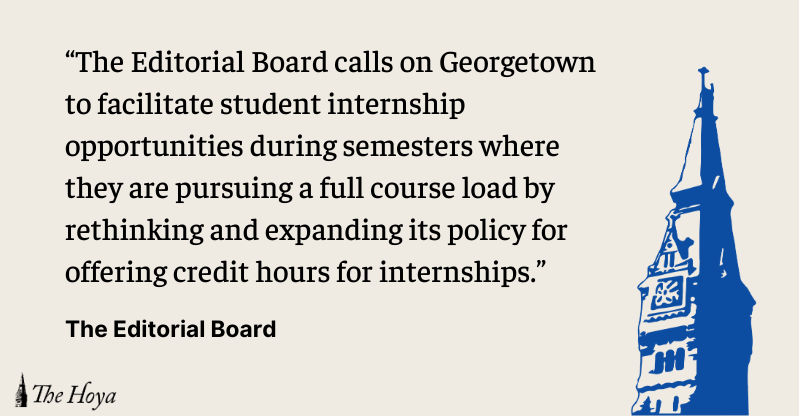For those of us who aren’t economics majors, the details of the new campaign by Georgetown, Divest! – and the university’s response to it – may seem somewhat baffling. Anyone who does comb through all of the facts, however, will conclude that Georgetown, Divest! is a group with a good heart but an outdated and politically divisive strategy.
Georgetown, Divest! is lobbying for the university to avoid investing the endowment in companies that profit from human rights violations. The group has chosen to focus on the Israeli-Palestinian conflict. While the group’s leaders have claimed that they do not favor either side of the conflict, their Web site exhibits a clear pro-Palestinian leaning. As a result, some students have interpreted the Divest coalition to be primarily an anti-Israel organization. On a campus where Israel’s birthday draws both celebration and protest, a specific emphasis on the disputed region only polarizes the student community and detracts from the group’s broader call for socially responsible investing.
In terms of that more general mission, the Divest coalition has succeeded in raising awareness about an important issue. As a Jesuit and Catholic university, Georgetown should be particularly interested in where its money goes and what companies it supports. The Divest coalition rightly brought attention to the current absence of any institutional practices to monitor the social responsibility of the fund managers who invest the endowment. The group has approached the university, however, with an unrealistic proposal.
The coalition wants the administration to halt any investment in companies that it believes directly or indirectly facilitate the infringement of human rights. To that end, it lists six companies in particular from which it demands university divestment.
Unfortunately, the world of modern investment does not allow for such a simple solution. The university no longer directly allocates endowment funds to firms of its own choosing. Rather, it has delegated its investment to fund managers who have the expertise to plan effective investment portfolios for the university’s almost $1 billion endowment. Furthermore, the university cannot be sure exactly where its money is at any given moment. Fund management is a fluid business, and the group of companies that endowment money supports can change on a daily basis.
Given today’s fast-paced and complex economy, it would likely be a financially detrimental move to return to the direct-investment model. Georgetown would simply not be able to keep up with peer universities who work through fund managers. That does not mean, however, that the university should remain locked into a process with little oversight. All managed funds are not the same, and some are more open about where they invest than others. The university ought to revamp its criteria for choosing fund managers with that distinction in mind.
Moreover, Georgetown can learn from its peers. Yale has been identified as a leader in socially responsible investing. Harvard operates its own managed fund through the Harvard Management Company – a setup that gives Harvard more input as to where its money ends up. As of now, the managers handling the Georgetown endowment are outside parties that simultaneously coordinate the investment of other portfolios. The university’s endowment is likely too small at this point to make an autonomous university fund feasible, but it should nevertheless research the investment practices of other schools and strive to replicate practices that promote responsibility.
Even though the divestment scheme advocated by the Divest coalition is not achievable, it should not let the issue of socially conscious investment drop. It has stumbled upon a weakness in the university’s investment process and it should continue to pressure the university to improve its system for investment. By acting as a watchdog group, the divestment coalition can be the impetus behind significant changes in how Georgetown parcels out its endowment.
*To send a letter to the editor on a recent campus issue or Hoya story or a viewpoint on any topic, contact opinionthehoya.com. Letters should not exceed 300 words, and viewpoints should be between 600 to 800 words.*”













